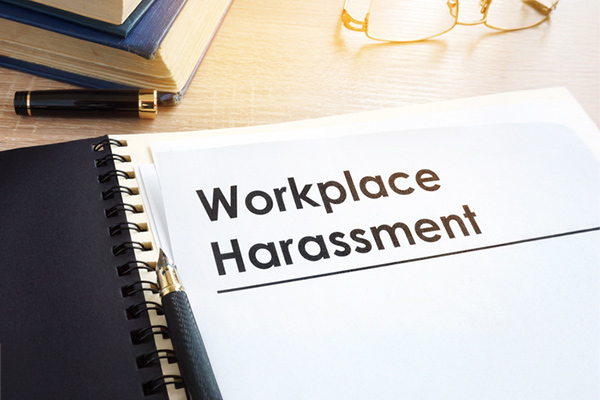
California Fair Employment and Housing Act: New Legal Precedent
The California Fair Employment and Housing Act (FEHA) prohibits harassment or discrimination in both employment and housing. Until July 2024, courts required plaintiffs to show a series of conduct to make a claim of workplace harassment or hostile work environment. But in July 2024, in its opinion in Bailey v. San Francisco, the California Supreme Court ratcheted up FEHA’s protections in the employment context. Now, “an isolated act of harassment,” such as a coworker’s one-time use of a particularly egregious racial epithet, may be enough to support a claim of harassment or hostile work environment under the FEHA.
Additionally, the court held that because a single slur may constitute harassment, an employer’s failure to conduct “immediate and appropriate corrective action” in connection with the epithet may constitute negligence on the part of the employer. The Bailey ruling, which establishes new legal precedent under the FEHA, set off alarms among employers throughout the state. These employers will now be held to a higher standard when it comes to taking corrective action in potential employee harassment situations.
Prohibited Actions Under the FEHA
The FEHA prohibits discrimination in employment and housing based on several protected characteristics, including age, color, disability, race, religion, gender, and sexual orientation. In this article, we focus on the workplace discrimination sections of the act.
First, a few key terms:
Employment discrimination refers to conduct by the employer, such as refusal to promote a person of color.
Workplace harassment refers to unwelcome conduct by a supervisor or coworker that creates a hostile work environment, such as unwanted touching (sexual harassment) or verbal abuse.
Hostile work environment refers to a workplace that’s so abusive or offensive it’s difficult for an employee to do their job. Harassment (including sexual harassment) can create a hostile work environment.
Employer’s Liability for Workplace Harassment
Once a plaintiff establishes that harassment occurred in the workplace, the employer may be found liable. If liability is found, the employer could be required to provide compensation for lost wages and other damages, attorney’s fees, and job reinstatement. The employer may also be required to make internal policy changes.
An employer’s liability for harassment hinges on whether the harasser is a coworker or a supervisor.
Supervisor as harasser: The employer is strictly liable. This means the employer will be held liable whether or not they knew about the harassment.
Coworker as harasser: The employer is liable depending on whether or not the employer took immediate and appropriate remedial action (action to prevent or correct the harassment).
Pre-2024 FEHA Legal Precedent
Before 2024, both federal and state courts held that while a single act could support a claim of harassment by a supervisor, the same was not true about harassment by a coworker. This meant a plaintiff claiming harassment by a coworker had to establish a series of harassing acts to support a claim.
Bailey v. San Francisco: New FEHA Legal Precedent
In July 2024, the California Supreme Court established a new FEHA legal precedent in deciding Bailey v. San Francisco District Attorney’s Office, S265223. In that case, the plaintiff (Bailey) claimed a coworker’s one-time use of a racial epithet constituted harassment and that her employer’s failure to conduct immediate corrective action constituted negligence.
The court of appeals disagreed with Bailey, holding (based on former legal precedent) that a single slur by a coworker wasn’t enough. Bailey needed to show a series of harassing conduct. Because harassment wasn’t shown, the appeals court also held the employer was not negligent in its failure to remediate the issue.
The California Supreme Court reversed the appeals court and remanded the case for trial, holding there was a triable issue of fact as to whether a single epithet could be deemed workplace harassment. The court acknowledged that past state and federal precedent required a series of acts if the bad actor was a coworker and not a supervisor, but it decided that, under the totality of the circumstances, a one-time slur by a coworker could indeed be “sufficiently severe so as to create a hostile work environment.”
Also, because harassment may be found after a single incident, the court held that the employer could be found negligent for failing to take immediate and appropriate remedial action in response to that single incident.
What the Bailey Ruling Means for California Employers
After Bailey, California employers would be wise to:
Take all complaints of coworker harassment seriously, even those involving a single incident.
Take immediate and appropriate remedial action in response to all reports of harassment, including those involving a single incident.
Train employees that a single incident may constitute harassment.
Revise employee policies/handbooks to reflect this new approach to harassment.
Consider a zero-tolerance policy regarding harassment.
New Legal Landscape — New Responsibilities for Lawyers
Of course, any change in law that affects employers will also impact employment lawyers. Current and future employment lawyers should be aware of Bailey and be prepared to advise their clients about how to prevent coworker harassment to limit their liability and ensure a safe and welcoming workplace for their employees.
Stay up to date on the latest legal developments in California, Connecticut, Indiana, and the rest of the nation with Purdue Global Law School.
Purdue Global Law School offers full-time and part-time online Juris Doctor programs. Graduates of our program are academically eligible to sit for the California or Connecticut bar or, with an approved petition, the Indiana bar. If you wish to advance your legal education but do not intend to become a practicing attorney, you may consider an online Executive Juris Doctor.
Single law courses are also available to help you explore a particular area of law without committing to a full degree program. Request more information today.

